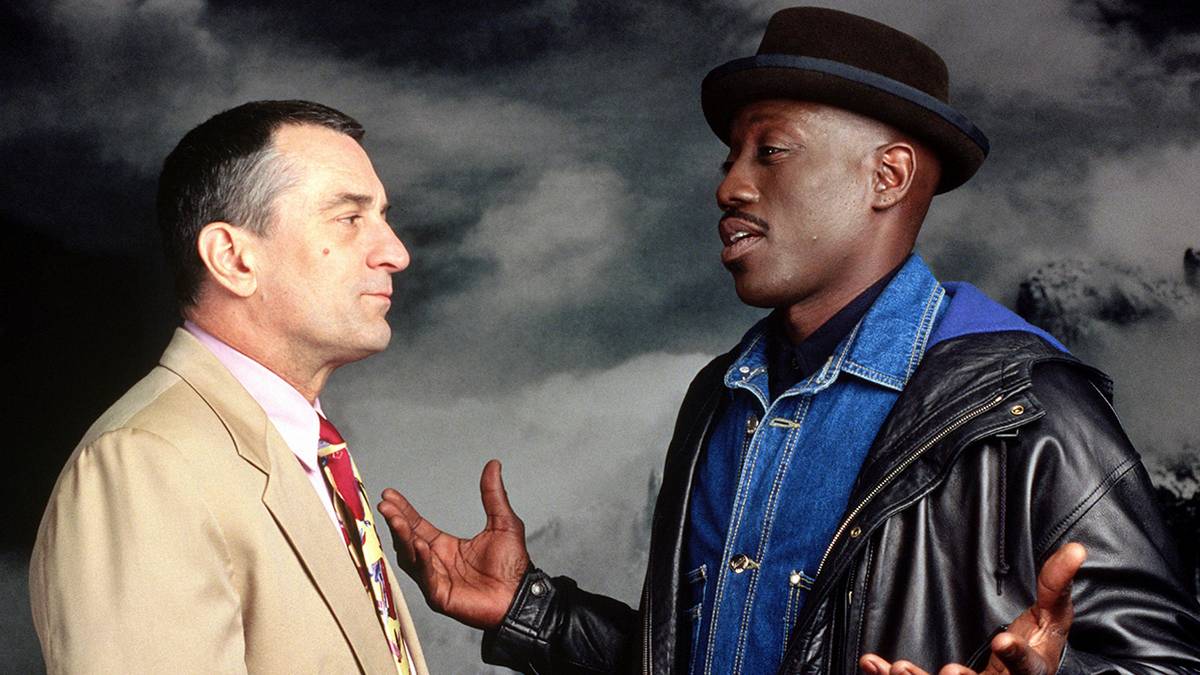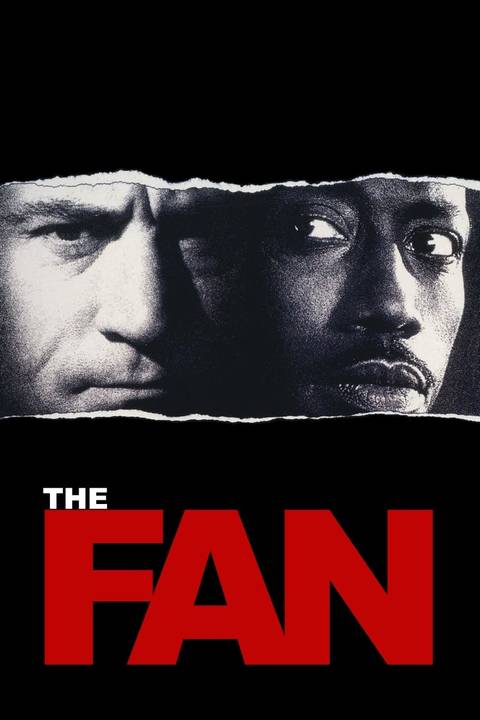Robert De Niro Explored the Twisted and Dark Side of Sports Fandom in This Forgotten 1996 Thriller

The new sports-themed horror flick Him hit theaters this past weekend, delivering a horror story set in the world of professional football. But nearly 30 years earlier, another star-studded film looked at the darker corners of pro sports. The Fan (1996) was director Tony Scott’s mash-up of a baseball drama and psychological thriller starring Robert De Niro and Wesley Snipes.
Though a critical and commercial disappointment, The Fan was an early example of how sports can be twisted into something darker, and a pre-social media look at the warped relationship between fans and their idols.
‘The Fan’ Was Far From a Homerun
Wesley Snipes plays Bobby Rayburn, a newly acquired outfielder for the San Francisco Giants. He’s talented, flashy, and saddled with the enormous pressure of justifying a $40 million contract. Standing in his shadow is Gil Renard (Robert De Niro), a lifelong Giants supporter whose life is collapsing around him. He’s estranged from his family, failing at work, and increasingly desperate for meaning. He’s also a knife salesman, in case there was any question about the film’s subtlety.
Gil latches onto Bobby as a symbol of hope and treats Rayburn’s batting slump as a personal betrayal. As his obsession intensifies, Gil’s behavior spirals from invasive to murderous, with Gil ultimately killing Bobby’s teammate (a young Benicio Del Toro) in an attempt to re-secure his hero’s number; he then lashes out violently at his idol when he feels slighted. The movie culminates with Gil kidnapping Bobby’s son, leading to a violent and ridiculous showdown inside the very stadium that once brought Gil joy.
Despite its pedigree — De Niro and Snipes at the peak of their star power, and Scott just coming off the hit Crimson Tide — The Fan whiffed with critics and audiences. Reviewers panned its over-the-top style, thin characters, and bombastic style, and the film grossed an anemic $18 million.
And make no mistake: The Fan is not a good movie. It’s too flashy, hyperactive, and cliché, cranking up the intensity instead of delivering the slow burn the psychological thriller requires. De Niro is dialed up to 11 from the start, almost a parody of the loners and stalkers he played throughout his career. Taxi Driver’s Travis Bickle was a complex character whose despair was rooted in loneliness, whereas Gil is immediately off-putting. In the first scenes, he scares potential clients away by shaving the hair off his legs, and he’s quick to profanely berate anyone who disagrees with him. The film is peppered with other abrasive characters, including Ellen Barkin’s loudmouthed talk radio host and John Leguizamo as Bobby’s fast-talking manager. Snipes, however, gives a charismatic performance as a major league player who is beginning to question his own motivation.
Tony Scott was no stranger to sports on film. Days of Thunder explored NASCAR rivalries, while The Last Boy Scout opened with a surreal and violent shooting during a pro football game. The Fan pushed further, filtering the spectacle of professional baseball through the same stylistic excesses that defined Scott’s ’90s output. Working with cinematographer Dariusz Wolski, Scott delivers a heightened reality; sunsets are bathed in deep orange, neon cuts through dark blue in the evening, and the film’s climax takes place during a baseball game occurring during a torrential downpour. There are quick cuts and intense closeups as Hans Zimmer’s soundtrack pulses under everything, at least when the soundtrack isn’t filled with needle drops; Scott uses the Rolling Stones for when Gil is in a good mood, and Nine-Inch Nails when he’s breaking from reality. It’s a flashy and overwhelming experience that’s undone by an increasingly ludicrous script.
‘The Fan’ Dives Into the Dangers of Parasocial Relationships
At most, The Fan is a guilty pleasure, with performances and plot developments that skirt the edge of camp. Scott’s over-the-top direction is never boring, but it’s empty calories, and he would bring that same bombast to much better films. When the film veers into a bizarre kidnapping story in its back half, it runs so far afield of reality that it becomes fascinating.
But the film does provide interesting commentary about the relationship between fans and public figures. It’s a look at parasocial relationships made a decade before fans and their heroes could connect on Facebook and X, and it understands the entitlement of toxic fandom. Gil not only feels like he has all the answers the Giants need, but he also believes he’s essential to Bobby’s success when he comes out of a slump. When he feels unappreciated, he believes he has the right to lash out.
The Fan is also an interesting, if not altogether successful, attempt at fusing two very different genres. Sports movies are typically about hope, resilience, and community — think Rocky, Remember the Titans, or Field of Dreams. This psychological thriller thrives on isolation, obsession, and the collapse of community. The Fan wasn’t the first dark sports movie, but its mix of psychological thriller and the pursuit of excellence foreshadows future projects like Darren Aronofsky’s The Wrestler and Black Swan, as well as Him, all of which explore the bodily and mental sacrifice required in performance.
‘The Fan’ is Timely, But Not Great
Almost three decades later, The Fan is remembered less for its story than for being a daring, if messy, attempt to show how fandom can mutate into fanaticism. It’s not a great movie. And yet, it’s a watchable stylistic exercise, and its central story of toxic fandom is still relevant.
De Niro’s Gil is the embodiment of the dark side of fan culture and the belief that athletes and artists owe their fans more than performance, that failure is a personal affront, and that devotion excuses destruction. Bobby, meanwhile, is the athlete trapped not just by contracts and expectations, but by the deranged projections of strangers who see him as something more than human.

- Release Date
-
August 15, 1996
- Runtime
-
116 minutes
- Director
-
Tony Scott
- Writers
-
Phoef Sutton
- Producers
-
Barrie M. Osborne, Bill Unger, James W. Skotchdopole

